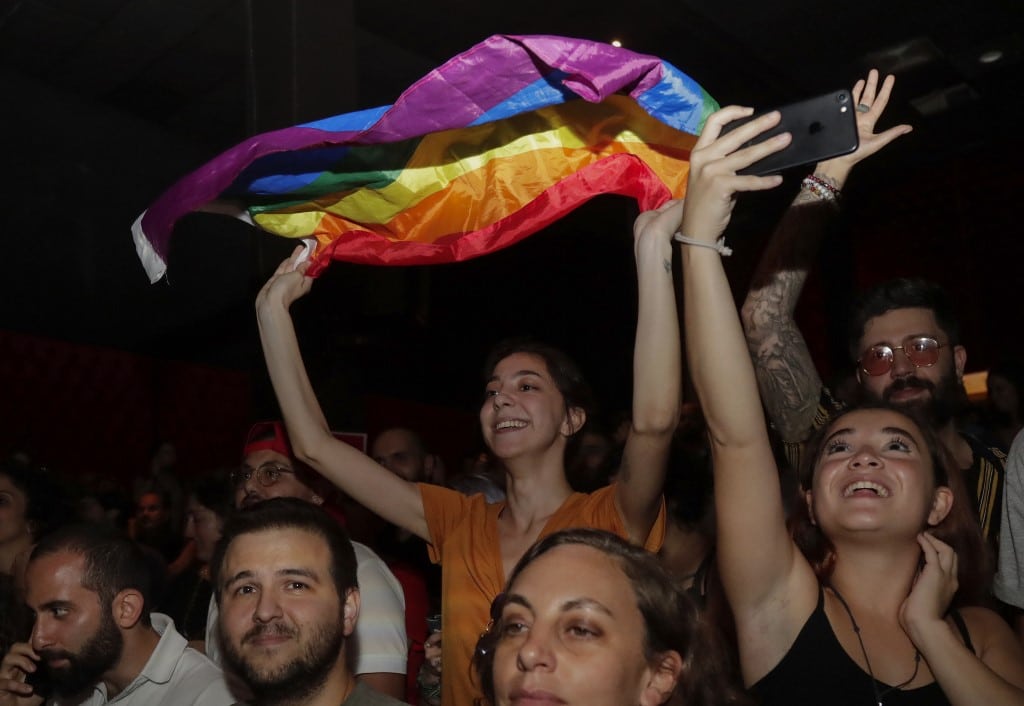
In July 2019, the programming of a Lebanese indie rock band at a festival in the predominantly Maronite Christian city of Byblos sparked controversy over blasphemy allegations.
Organizers of the Byblos International Festival yielded to pressure from church officials, politicians and online groups who accused the locally grown and internationally acclaimed band Mashrou’ Leila of dishonouring Christian symbols and promoting homosexuality. Following several threats of violence, the organizers announced on 30 July that the show scheduled for 9 August would be cancelled to ‘prevent bloodshed and maintain security and stability’.
Tensions started to mount on 17 July, when a group called Jonoud al-Rab (‘God’s Soldiers’) vehemently attacked the band on Facebook for its religious and sexual allusions. The hostility specifically targeted two 2015 songs called ‘Djin’ and ‘Asnam’ and a 2015 social media post by lead singer Hamed Sinno, who is openly gay, portraying the pop star Madonna as the Virgin Mary and Jesus Christ as a ‘fanboy’.
Jonoud al-Rab’s online campaign calling for the concert to be cancelled was backed by several church representatives. On 22 July, the Maronite Catholic Eparchy of Byblos issued a statement condemning the programming of Mashrou’ Leila and accusing the band’s songs of undermining ‘religious and human values’ and ‘directly opposing the Christian faith’.
Father Abdo Abu Kasm, a Catholic Media Centre spokesperson, called for legal action against the band, stating that the concert “poses a danger to the community”. In an interview with al-Nahar newspaper, he went on to justify the online campaign, saying that the band “encourages homosexuality”.
Nagi Hayek, a member of the largely Christian political party Free Patriotic Movement, also took to social media, publishing a virulent post on Facebook stating, ‘This is not only a warning about the 9 August concert in Byblos. This is a direct threat to the group and to all those working to promote its concerts in Byblos. We will prevent the concert by force if need be, and I will be the first one to do so. Anyone who offends the Cross and Christ has no place in Byblos.’
In a joint statement, the city’s three members of parliament also called for the concert to be scrapped. MP Ziad Hawat said the cancellation was necessary to “preserve the image of Byblos, and its role in respecting sanctities and values”.
The band said its members were questioned by police but eventually released without charge. Although the band subsequently removed the controversial content from its social media platforms, apologized publicly and promised to perform the show without the songs in question, festival organizers went ahead with the cancellation.
A solidarity campaign was quickly launched. Dutch group Within Temptation announced the cancellation of its own festival appearance, scheduled for 7 August, and Mashrou’ Leila’s supporters called for the band’s music to be played across Lebanon on 9 August, the date of the axed show. A parallel concert titled ‘The sound of music is louder’ was organized in the Hamra district of the capital Beirut. A hashtag for the concert read al-qame mesh mashrou’ (‘censorship isn’t a project’), a play on the band’s name, which means ‘the project of Leila’.
Mixing different musical styles and artistic expressions, the concert was also an opportunity to express support for LGBTQI+ rights. Many attendees waved the rainbow flag, a strong political gesture given the homophobic attacks on Mashrou’ Leila’s lead singer in the preceding weeks.
In an interview with CNN, human rights lawyer Nizar Saghieh described the Mashrou’ Leila case as the start of a post-truth era in Lebanon. The meaning of the band’s lyrics, which often feature a play on words and are open to interpretation, is at the centre of the row.
“Nobody is asking for the truth. Everyone is expressing his hate and that’s why the band was a victim of lots of falsifications and fake news,” said Saghieh, who is part of the band’s legal team. “It’s not the first time an artist is accused of blasphemy, but it is the first time that the artist is accused and given a verdict in a mob trial against them.”
Writing for Human Rights Watch, Lebanon and Bahrain researcher Aya Majzoub urged the Lebanese government to reform laws that criminalize protected speech: ‘Lebanon should decide what kind of country it wants to be: one that controls and dictates public discourse, or a beacon of tolerance and a centre for art, music and culture.’
Some commentators have pointed out the similarities between Christian and Islamic extremism, with Lebanese writer Khairallah Khairallah ironically comparing the mentality of the band’s detractors to the Islamic State. ‘Those who objected to Mashrou’ Leila’s concert in Byblos, for the reasons they advanced, could only be said to belong to the Islamic State in thought and conduct,’ he wrote.
According to Ayman Mhanna, executive director of the Skeyes Center for Media and Cultural Freedom, “There is an inferiority complex within the Christian authorities in Lebanon. They want to prove that they can defend their morals.”
But for free speech activists, the cancelled concert epitomizes three years of declining public freedoms. In recent months, several films have been banned, books censored and the Brazilian metal band Sepultura denied visas for being ‘devil worshippers’.
On 12 August, the radio station Voice of Lebanon reported that a satirical show due to be performed in the town of Bint Jbeil in southern Lebanon had been cancelled. Although the exact details of the cancellation remain unclear, it followed alleged political pressures resulting from concerns over the women performers’ lack of modesty and the nature of some of the jokes.
Coming just weeks after Mashrou’ Leila’s ban, this latest incident suggests that ‘the alarming crackdown on free speech in a country once proud to embrace diversity’ is far from over.


